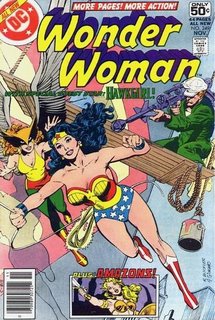 I depart Boston again for another Midwestern locale. Like last week, I will be presenting my research in my own on-the-road version of Spectacular, Spectacular.
I depart Boston again for another Midwestern locale. Like last week, I will be presenting my research in my own on-the-road version of Spectacular, Spectacular. Among other things, these trips are useful because they tell me that there is interest in my research. When working in solitary conditions, I can lose sight of that fact. Moreover, I am reminded that there are lots of funky, cool, interesting places in the upper Midwest (except in Indiana – which is a dead zone). The upper Midwest is often overlooked, I think.
In the meantime, I have [reluctantly] upgraded to the new blogger. The changes are subtle, but disorienting. Let's stick together in this -- Nobody gets left behind.
Thanks for the good wishes, whether written or thought, about my January suckitude. I chatted with a wise and sassy friend who helped me get level-headed. In fact, while stress abounds, there are many good things at play right now. It helps to be reminded – but January still sucks.
My last post, however, made me think of other childhood elements that have influenced my adult thinking about the universe. One good thing about [lay] Catholics is that they can hold multiple conceptions about how the cosmos works, some even contradictory, all at the same time. Curanderas coexist along side priests without a great deal of debate (much to the chagrin of priests).
Other good things about Catholics? Did I mention the drinking already? Oh, I did. Well, you know, I really wouldn’t drink at all -- It’s just that I can’t figure out any other way to get the vodka into my blood stream.
Anyway, astrology came to my mind as an influential guide to the universe during my childhood. Like Catholicism, the Zodiac attempts to explain the relationship between individual free-will and destiny in daily life. Within my family, we learned as much about the Zodiac as catechism. Actually, I might have learned more about the Zodiac because it just wasn’t as boring to learn. The Zodiac required less route memorization.
Keep in mind that I am not saying that my family was Nancy-Reagan crazy over astrology. Nobody in my household based career decisions or the fate of nation-states on star charts. If we had our finger on a nuclear arsenal, the sun’s relative position to Virgo probably would not have influenced the decision whether to launch – probably.
Still, we did learn a great deal about the meanings of each Sun Sign. Over time, I have also noticed some trends in the people that I meet based on those signs. Virgo, the Virgin, for instance is often into some darn kinky shit. Unlike their namesake, every Virgo I have ever known really likes the sex – and likes it in as many inventive ways as they can find. Pieces always seem like they have conflicting impulses within themselves, but are also kind hearted. Taurus folk are self-centered, gluttonous, liars (who tell many lies). Okay, that last one might just be based on a sample of one.
“What’s your sign?” I hear you asking, “We must know so that we will arrange to only give birth under that special, sacred, chosen sign.” What? Okay, fine, maybe the last bit is really just my advice to you rather than what you are actually saying.
I am Cancer, the Crab. As a stand-up comic once noted, mine is the only zodiac sign named for two diseases.

Being an inquisitive youth, I learned as much as I could about Cancerian’s basic characteristics. In many ways, I fit the crab shell pretty darn snugly.
What are the basic characteristics of Cancer that I learned to accept as truth in young days? Have you have gone for a walk along the beach? Then you pretty much know what life with Cancer will be like.
We are hard on the outside, but soft and squishy on the inside. As a people, we prefer not to be boiled alive and served with butter. I am not sayin', I am just sayin'. Go kill a bull instead.
Cancers rarely walk in a straight line. Rather, everything is approached at side-angles. If threatened or in fear of losing something, however, suddenly a straight-line appears the shortest distance.
Those claws aren’t just for show. Anything crabs deem worthy of holding in the first place will not be let go of easily. To put a positive spin on that, Cancers are loyal and tenacious. The less rosy image makes Cancers out to be a bit clingy. As a matter of fact, crabs would rather have a claw cut off than let go of things [and people] close to us. If we do lose a claw, it’s a deep wound. We retreat into the water, not to be seen on dry land for months. Eventually, however, we grow our claws back and then clinch again, just as adherently.
Astrologers often say that Cancers’ moods shift according to the changing tide and moon, their planet. What they really mean is that Cancers are one of the moodiest of signs.
Crabs also horde beyond reason. Go into a Cancer house and you will likely find soup cans stored under the bed, “Just in case.” You might ask, in case of what? That’s a foolish question. You never know when the next great soup shortage might occur.
Something else about those crabs? They’re crabby. Personally, I resist the term, mostly because it makes me feel bad. Gravitas, after all, sounds so much more refined. Truth be told, though, Cancers can be darn right crabby, especially if they spent the whole day avoiding the net that would lead them to the boiling pot.
Revenge is not Cancer's usual response. If harmed, retreat is the crab's first instinct. If pushed to extremes, however, only Scorpio rivals the fierceness with which Cancer will retaliate.

Every Cancer, gay or straight, male or female, loves their shell. By shell, I really mean their home. Travel is enjoyable, but only if Cancers know there is a haven that awaits their return. Don’t believe me? Next time you meet a Cancer, of any stripe, ask them about their home. They will have a lot to tell you about it. If they love it, they will tell you all the details of how they found it, what changes they made, and their favorite parts about it. If they, however, hate their current residence or trouble is brewing at home, they will suddenly look like you just stuck them in an eye with a stick.
Cancers also remember almost everything that you tell them. Did you have a conversation with a Cancer about which person to invite as your prom date in high school? Don’t remember? Cancer does. Cancers keep all those detail on neat index cards in their little shell, ready for easy access.
So, those are the basic crabby qualities that I always knew. It does beg the question, though, am I like Cancer because of strange and mysterious powers within the cosmos? Or because I learned that’s what I should be like since birth? The Zodiac does nothing to solve the nature verses nurture debate.
































